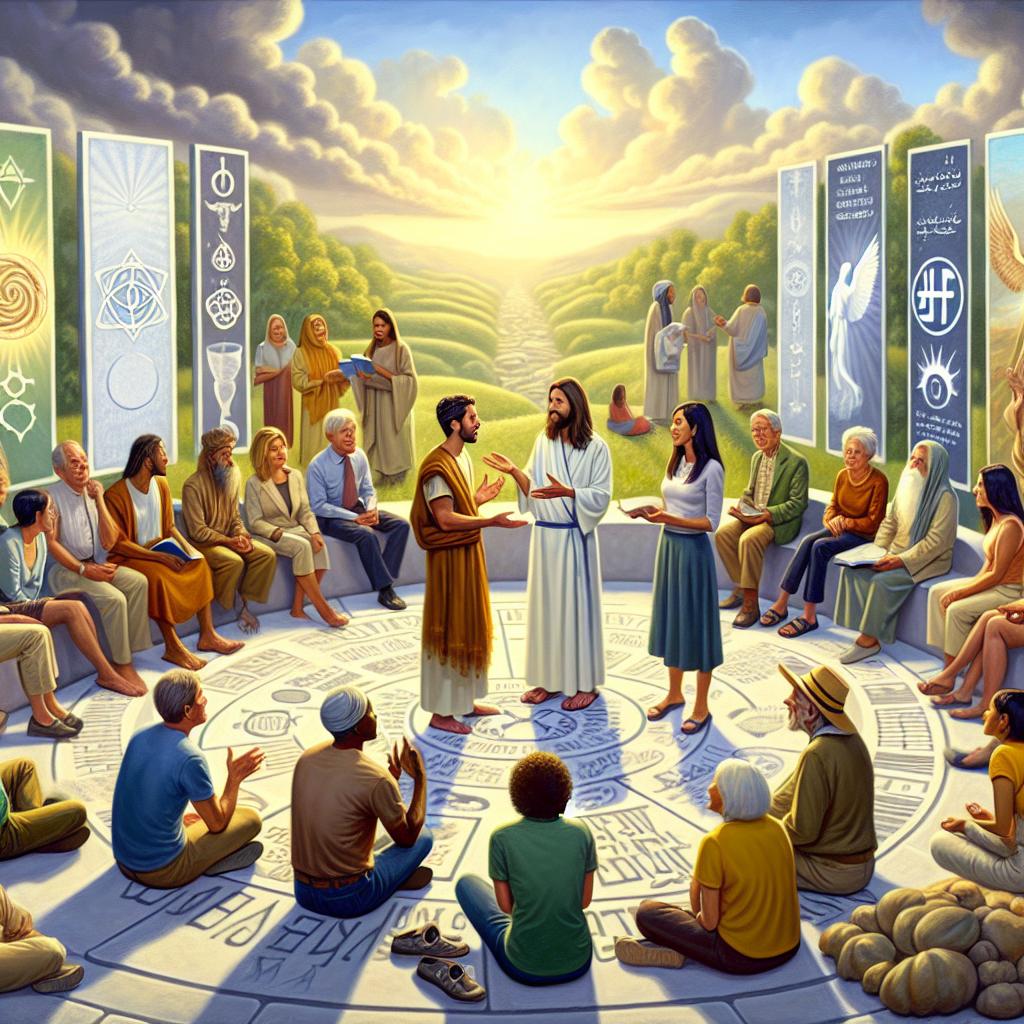
Engage in Creation Conversations: Essential Tips for Talking with a Jehovah's Witness
Published: 25 April 2024
How to Discuss Creation with a Jehovah's Witness
Jehovah's Witnesses are known for their persistence and zeal in spreading their beliefs. As a Christian who believes in biblical creation, it is important to engage in meaningful conversations with Jehovah's Witnesses and address the differences between their understanding of creation and the biblical account. This article aims to provide guidance on how to discuss creation with Jehovah's Witnesses, urging them to critically examine the teachings of their organization.
1. The Length of a Genesis Day
One fundamental difference between the Watchtower Society's teachings and biblical creation is the interpretation of the length of the "days" described in Genesis 1. While Jehovah's Witnesses argue that these days can represent longer periods of time, it is important to emphasize that a literal interpretation of a 24-hour day aligns with the context and structure of the Genesis account. The word "yom," translated as "day" in Hebrew, primarily refers to an ordinary, literal day when used in Scripture with specific beginning and end points or described as "the first day," "the second day," etc.
To illustrate this point, ask the Jehovah's Witness how the writer of Genesis could have made it clearer if they intended to describe six ordinary 24-hour days. The use of evening and morning to mark each day and the explicit description of each day as the "first day," "second day," etc., supports a literal interpretation. Additionally, Exodus 20:11 states that God created everything in six days, leaving no room for millions or even any years between verses 1, 2, and 3.
2. The Holy Spirit as God's Personal Being
The Watchtower Society teaches that the Holy Spirit is not a personal being but rather an impersonal "active force" of God. However, numerous passages in Scripture depict the Holy Spirit as having personal attributes, such as speaking (Acts 13:2), bearing witness (John 15:26), feeling emotions (Isaiah 63:10), and having a mind (1 Corinthians 2:10,11). Jesus Himself referred to the Holy Spirit as "He" in John 16:13.
Engage the Jehovah's Witness in a discussion about Romans 8:26,27, which describes the Holy Spirit making intercession for believers. Ask them how an impersonal force can engage in such personal actions. Furthermore, Acts 5:3,4 reveals that lying to the Holy Spirit is equated with lying to God, clearly indicating the personhood of the Holy Spirit. Invite the Jehovah's Witness to read 2 Corinthians 3:17 in their own New World Translation, where it states that "Jehovah is the Spirit," affirming the identity of the Holy Spirit as God.
3. Jesus as God, Not a False god
Another significant difference between biblical Christianity and Jehovah's Witnesses' beliefs is the nature of Jesus Christ. The Watchtower Society translates John 1:1 as "the Word was a god" instead of "the Word was God." This translation diminishes Jesus to a false god rather than acknowledging Him as God Himself. Nevertheless, other passages in Scripture confirm Jesus' divine nature.
Direct the Jehovah's Witness to John 20:28, where Thomas addresses Jesus as "My Lord and my God." Jesus' response does not correct Thomas for blasphemy but affirms his statement. This interaction supports the understanding that Jesus is God. Additionally, Isaiah 9:6 prophetically refers to the coming Messiah as "The mighty God," reinforcing Jesus' divine identity.
It is essential to help Jehovah's Witnesses recognize that their organization's teachings downgrade Jesus and contradict scriptural references that clearly identify Him as God. By highlighting these discrepancies, they may begin to question their leaders' doctrine and be more open to the truths of the Gospel.
Why This Matters
Engaging in conversations about creation with Jehovah's Witnesses is crucial for several reasons. First, it allows them to see the inconsistencies and inaccuracies in their organization's teachings on creation. By highlighting these discrepancies, they may realize that their leaders are not providing them with reliable information. Second, discussing creation can lead Jehovah's Witnesses to question other teachings of their organization, potentially opening their minds to the true Gospel message of salvation by grace through faith. Finally, engaging in respectful dialogue facilitates mutual understanding and fosters a spirit of love and compassion, reflecting Christ's teachings.
Think About It
Consider the impact that a well-informed conversation about creation can have on a Jehovah's Witness. By presenting biblical evidence and encouraging critical thinking, you have the opportunity to challenge their beliefs and lead them towards a deeper understanding of God's truth. Remember to approach these conversations with love, patience, and respect, focusing on building a bridge of understanding rather than winning an argument.
